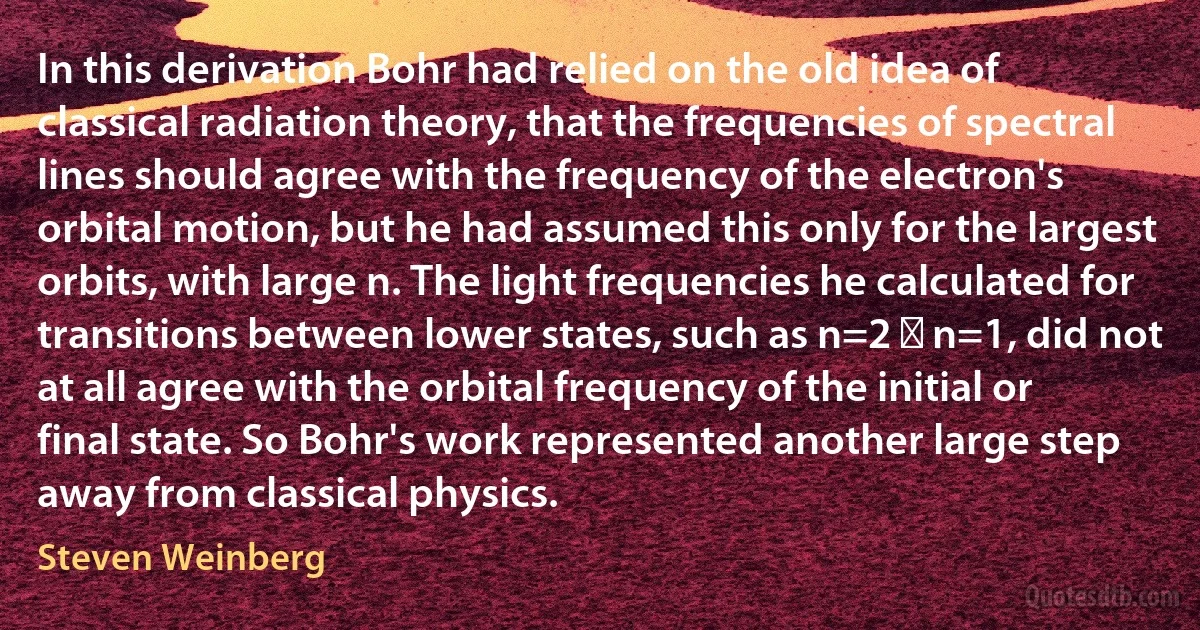
In this derivation Bohr had relied on the old idea of classical radiation theory, that the frequencies of spectral lines should agree with the frequency of the electron's orbital motion, but he had assumed this only for the largest orbits, with large n. The light frequencies he calculated for transitions between lower states, such as n=2 → n=1, did not at all agree with the orbital frequency of the initial or final state. So Bohr's work represented another large step away from classical physics.
Steven WeinbergRelated topics
classical derivation final frequency idea initial large light lower orbital radiation should state step work bohr statesRelated quotes
Precisely similar ideas are applicable to the molecules that form the air in a room. ...The classical mechanics now predicts that the whole energy of motion will be changed into radiation [heat], so that the molecules will shortly be found lying at rest on the floor... In actual fact they continue to move with undiminished energy, forming a perpetual-motion machine in defiance of classical mechanics. ...We have passed from one to another of three worlds... from the man-sized world to the world of the electron.

James Jeans
The classical mechanics had envisaged the world constructed of matter and radiation, the matter consisting of atoms and the radiation of waves. Planck's theory called for an atomicity of radiation similar to that which was so well established for matter. It supposed that radiation was not discharged from matter in a steady stream like water from a hose, but rather like lead from a machine-gun; it came off in separate chunks which Planck called quanta. This... carried tremendous philosophical consequences.

James Jeans
In the past century, and even nowadays, one could encounter the opinion that in physics nearly everything had been done. There allegedly are only dim 'cloudlets' in the sky or theory, which will soon be eliminated to give rise to the 'theory of everything'. I consider these views as some kind of blindness. The entire history of physics, as well as the state of present-day physics and, in particular, astrophysics, testifies to the opposite. In my view we are facing a boundless sea of unresolved problems.

Vitaly Ginzburg
By his theory of relativity Albert Einstein has provoked a revolution of thought in physical science. ...Physical space and time are found to be closely bound... with... motion of the observer; and only an amorphous combination of the two is left... It is my aim to give an account of this work without introducing anything very technical in... mathematics, physics, or philosophy. ...[T]he task is one of interpreting a clear-cut theory... although perhaps not everyone would accept the author's views of its meaning.

Arthur Eddington
'Time' has a large part to play in looking at a picture. A picture (a stupid empty surface to begin with) gets covered in the course of its creation by a rhythmically measured network of colors, lines and dots, which evokes in its final form a total of living movement. The eye jumps from a blue to red, to green (even if there is only a change of form), to a black line, suddenly comes upon a sharp white eruption, follows it, floats on to... It is impossible to take it all in at once. Time is inseparable from surface.

August Macke
